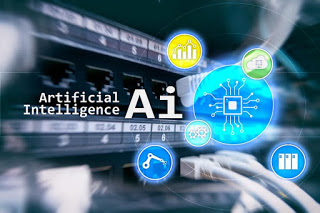Santoni de Sio, F., Mecacci, G.
Philos. Technol. 34, 1057–1084 (2021).
https://doi.org/10.1007/s13347-021-00450-x
Abstract
The notion of “responsibility gap” with artificial intelligence (AI) was originally introduced in the philosophical debate to indicate the concern that “learning automata” may make more difficult or impossible to attribute moral culpability to persons for untoward events. Building on literature in moral and legal philosophy, and ethics of technology, the paper proposes a broader and more comprehensive analysis of the responsibility gap. The responsibility gap, it is argued, is not one problem but a set of at least four interconnected problems – gaps in culpability, moral and public accountability, active responsibility—caused by different sources, some technical, other organisational, legal, ethical, and societal. Responsibility gaps may also happen with non-learning systems. The paper clarifies which aspect of AI may cause which gap in which form of responsibility, and why each of these gaps matter. It proposes a critical review of partial and non-satisfactory attempts to address the responsibility gap: those which present it as a new and intractable problem (“fatalism”), those which dismiss it as a false problem (“deflationism”), and those which reduce it to only one of its dimensions or sources and/or present it as a problem that can be solved by simply introducing new technical and/or legal tools (“solutionism”). The paper also outlines a more comprehensive approach to address the responsibility gaps with AI in their entirety, based on the idea of designing socio-technical systems for “meaningful human control", that is systems aligned with the relevant human reasons and capacities.
(cut)
The Tracing Conditions and its Payoffs for Responsibility
Unlike proposals based on new forms of legal liability, MHC (Meaningful Human Control) proposes that socio-technical systems are also systematically designed to avoid gaps in moral culpability, accountability, and active responsibility. The “tracing condition” proposes that a system can remain under MHC only in the presence of a solid alignment between the system and the technical, motivational, moral capacities of the relevant agents involved, with different roles, in the design, control, and use of the system. The direct goal of this condition is promoting a fair distribution of moral culpability, thereby avoiding two undesired results: first, scapegoating, i.e. agents being held culpable without having a fair capacity to avoid wrongdoing (Elish, 2019): in the example of the automated driving systems above, for instance, the drivers’ relevant technical and motivational capacities not being sufficiently studied and trained. Second, impunity for avoidable accidents, i.e. culpability gaps: the impossibility to legitimately blame anybody as no individual agent possesses all the relevant capacities, e.g. the managers/designers having the technical capacity but not the moral motivation to avoid accidents and the drivers having the motivation but not the skills. The tracing condition also helps addressing accountability and active responsibility gaps. If a person or organisation should be morally or publicly accountable, then they must also possess the specific capacity to discharge this duty: according to another example discussed above, if a doctor has to remain accountable to their patients for her decisions, then she should maintain the capacity and motivation to understand the functioning of the AI system she uses and to explain her decision to the patients.
